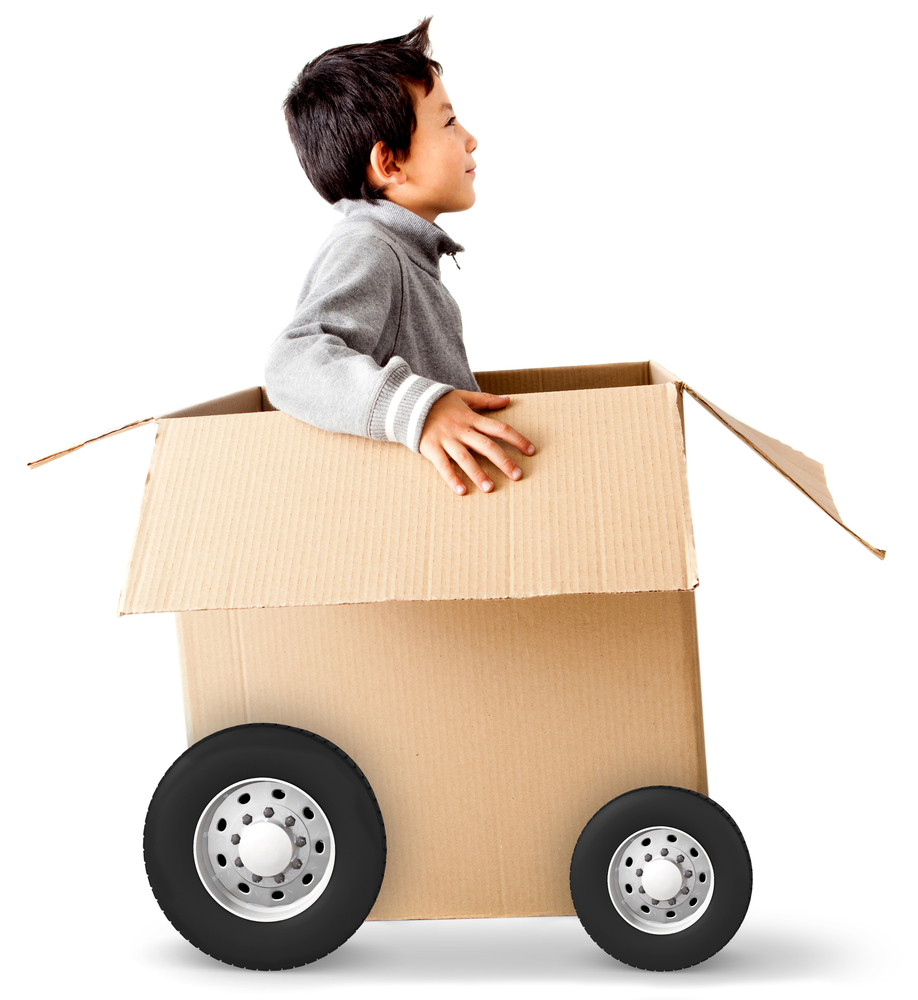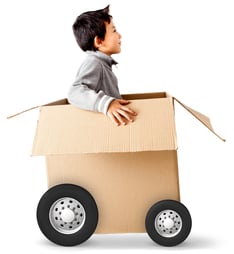Abstract Thinking and Young Children
Posted by May Recreation Content Team on

Young children are incredibly impressionable. Part of the reason they are so prone to fall in love with creative characters and over the top story lines—whether those are colorful puppets or clever puppy-dogs or princesses and pirates that are off to save the world.
Small children are prone to having overactive imaginations that, with a little bit of guidance, can be directed into worthwhile, constructive development towards abstract thinking.
What is Abstract Thinking?
Abstract thinking is the ability to think outside of the box. It is the ability to think creatively—to identify a problem and attach a potential solution to it via the application of real world experiences. When you think of the term abstract you may think of abstract painters; someone like Picasso, who would paint pictures that were difficult to recognize the basic facial features in.
think creatively—to identify a problem and attach a potential solution to it via the application of real world experiences. When you think of the term abstract you may think of abstract painters; someone like Picasso, who would paint pictures that were difficult to recognize the basic facial features in.
Abstract thinking takes basic components of problem solving and obscures them in similar ways, leaving the solution to the problem as difficult to find as it is to decode the face in an abstract portrait of Picasso. Young children who learn how to use abstract thinking are able to equip themselves with added tools to help solve these puzzles and develop creative solutions to unique problems.
When utilizing abstract thinking, children will begin to:
- Classify experiences that they have had together in chunks in their mind to make them easier to associate with one another, therefore making it easier to recall one experience from another.
- Be able to draw from past experiences as they start to cope with experiences that they haven’t dealt with before, drawing similarities and realizing that there are connections between what they are doing and what they’ve done.
- Draw conclusions about information they are exposed to, such as whether something is dangerous or whether a food looks good to eat.
- Start to plan out a sequence of events, and may even begin to coordinate multiple steps in association with those events, such as supplies or other needed details.
- Develop potential solutions to problems that develop.
These are not skills that will develop overnight, especially not in young children. The skills listed above are slow to develop, requiring years to cultivate through regular intervention and training. Early childhood education programs, including speech and language support, literacy and motor skill development and physical therapy development focusing on the development of muscle strength through free play are all beneficial strategies that are good for early childhood development, but in the case of developing abstract thinking there are additional strategies that ought to be employed to maximize the benefits of this way of thinking.
In general, the more experiences that kids have, the stronger they will be with their abstract thinking because they will have a larger base of experiences from which they can draw from.
In school, students learn their ABCs and their numbers, and then they learn how to spell and write their name, and from there they learn how to use those numbers to represent basic math equations. All the while they are building on their base of experiences and putting to use the knowledge that they have, building their skill set in the process and learning how to thinking creatively and abstractly.
Other ways that you can encourage abstract thinking at home include:
- Making up stories that have a beginning, middle and end.
- Encouraging dramatic play, especially with kitchen sets and other creative role-playing toys.
- Performing science experiments at home that allow your children to experience trial and error first hand.
Allowing your children to get their hands dirty and engage in creative play techniques like those listed here will help to encourage strong abstract thinking skills, which can help improve problem solving and enhance a child’s aptitude for learning.
Contact May Recreation Equipment & Design in East Texas to help outfit your playground equipment, shelters, playground safety surfacing, splash pads, site amenities, and other related products.
